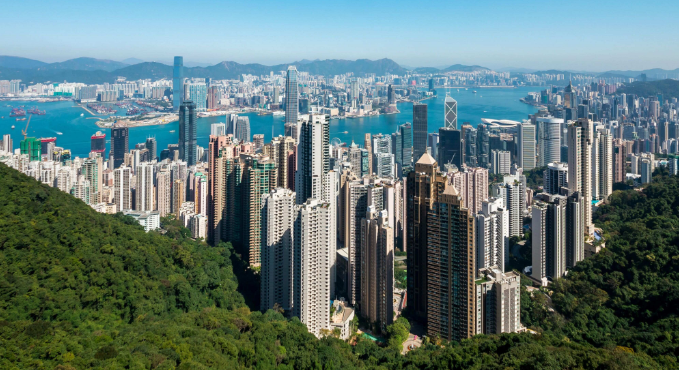Unprecedented Drop in Sales Reflects Deepening Economic Struggles
HONG KONG: On a recent Saturday (Oct 8), over 100 salespeople flooded a luxury shopping mall in Hong Kong, urging shoppers to consider a newly launched residential development. Despite offering apartments at a 9 per cent discount compared to nearby second-hand homes in the New Territories, the project, One Innovale – Bellevue, has struggled. By early October, nearly a third of its units remained unsold.
The situation has been even worse for other developments. A 139-unit property failed to sell a single unit by the end of its first day on the market, a rare occurrence in a city where real estate typically moves quickly. Another high-profile project sold only two units throughout the day, according to sales data. “We’re competing for fewer buyers due to concerns about rising interest rates,” said realtor Sam Wong. “Everyone is trying to be cheaper.”
This dip in demand signals the broader struggles of Hong Kong’s property market, which is caught in the global downturn exacerbated by rising interest rates. As borrowing costs increase, Hong Kong’s economy, already weakened by population outflow, COVID restrictions, and political instability, faces further pressure. Goldman Sachs forecasts a 30 per cent drop in home prices through 2023, with Jefferies Group predicting additional declines after an 8 per cent fall this year. The secondary market is nearing a five-year low.
Real estate has been the backbone of Hong Kong’s US$368 billion economy, with many of the city’s wealthiest individuals having built fortunes from property. For Hong Kong residents, homeownership has long symbolised success and stability, but the declining market is now threatening to erode that sense of security, which could, in turn, reduce consumer spending.
Recent data from the Hong Kong Monetary Authority (HKMA) shows a significant drop in mortgage approvals, with a 22.1 per cent decline in July compared to June, and a further 3.9 per cent decrease in August. Mortgage loans for secondary-market transactions dropped 30.3 per cent in July and 11.1 per cent in August. With hawkish signals from the US Federal Reserve, Hong Kong is expected to follow suit with more rate hikes. In response, local banks, including HSBC and Standard Chartered, have raised lending rates for the first time since 2018, further straining the property market.
Hong Kong’s economy is facing a potential contraction, with downgraded growth forecasts and a fiscal deficit twice as large as initially estimated. According to Aries Kin-Ming Wong, an economics professor at Hong Kong Baptist University, “Higher interest rates usually reduce economic activity, and in Hong Kong’s case, with weakened demand and emigration, the property market is especially vulnerable.”
The city is also seeing a shrinking workforce and reduced appeal to mainland buyers, particularly as Beijing’s increasing control diminishes Hong Kong’s status as a haven for affluent mainlanders. Instead, wealthy buyers are increasingly turning to Singapore, Australia, and California.
Despite falling property prices, affordability is worsening. A 250-square-foot studio in the middle-class neighbourhood of Kai Tak is now priced over US$500,000—roughly the same price as an apartment near Soho in New York. “It’s getting harder to justify buying now,” said Greg Cheung, 37, who has been searching for a home for years. “Prices need to drop by at least 15 to 30 per cent before it makes sense to buy.”
The city’s reliance on the financial sector also exposes it to the global slowdown, with major banks like Goldman Sachs and UBS starting layoffs in the region. “Sellers are cutting prices repeatedly, but many are still struggling to sell,” said Jason Hau of Centaline Property Agency. “It’s worse than even during the 2008 financial crisis.”








